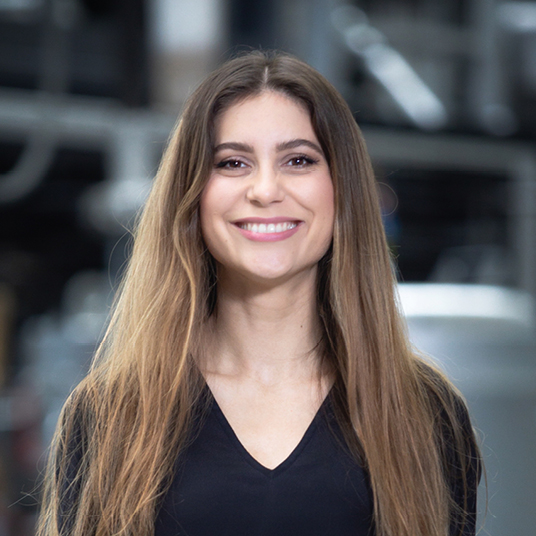Lilian Schwich
innovation4transformation
On the way to a circular economy for batteries
Batteries and energy storage systems are one of the keys to achieving the 1.5-degree climate target of the Paris Agreement. They are crucial to the transport and energy transition.
Batteries could provide up to 30 per cent of the required reduction in carbon emissions in the two sectors, according to estimates provided by the World Economic Forum. At the same time, batteries are challenging, given that the extraction of the required raw materials - such as lithium, graphite, cobalt, nickel and copper – is bad for the environment and carries strategic risks. Also, the production of new batteries eats up a lot of resources. Circular recycling – to the extent that this is possible - would provide significant relief. It would also reduce Germany's dependence on imports.
Lilian Schwich and her team are on the way to realising such a recycling process on a large scale, With their innovation, up to 90 per cent of battery resources can be recovered. Schwich laid the foundations for this together with Paul Sabarny. Together they developed a patent-pending process for resource- and climate-friendly recovery. It is based on thermal pre-treatment and hydrometallurgy. This technology makes it possible to recover all battery components, regardless of whether the battery is at the end of its service life or part of a faulty batch. In 2022, Lilian Schwich, Paul Sabarny and Dr Gideon Schwich founded cylib GmbH. This company will implement the recycling process successfully laboratory-tested in a pilot plant. The aim is to scale up to industrial size. Lilian Schwich's vision: the realisation of a genuine circular economy for batteries, taking into account the environment and all the components they contain with cylib. In addition, cylib has already established partnerships along the entire value chain. A genuine circular economy is now within reach.

